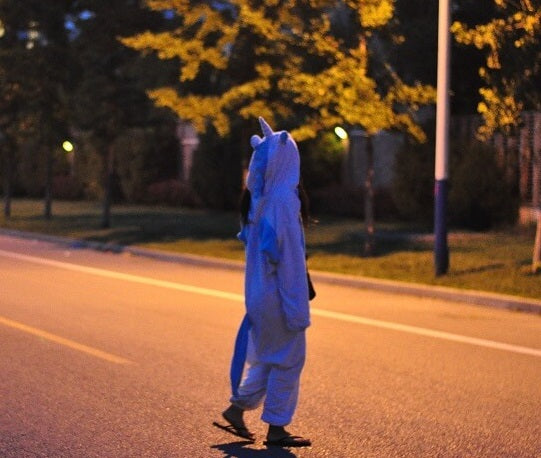Lions, often called the kings of the jungle, are famous for their majestic appearance and powerful roars. But have you ever wondered why do lions sleep so much? When we explore their sleeping habits of lions, we uncover just how much time these incredible animals spend resting. From lazy naps in the shade to deep slumbers at night, the sleeping patterns of lions reveal fascinating insights into their natural lion behavior. Understanding why lions sleep so much is a vital part of appreciating their lifestyle and survival strategies!
We hope this knowledge reassures you that lions' long hours of sleep are a natural and positive part of their well-being in the wild.
Understanding Lions and Their Sleeping Habits
 Lions are truly fascinating creatures with unique sleep habits shaped by their environment and instincts. To grasp why lions sleep so much, it helps to understand their lifestyle and role as apex predators. Living in prides—groups made up of related females, their cubs, and a few powerful male lions—these big cats spend their days hunting, feeding, grooming, and marking territory. Unlike many animals, lions are crepuscular, meaning they are most active during the early morning (dawn) and late evening (dusk). Lions' eyesight is specially adapted to see better in darker or low-light conditions, giving them an advantage during these times when their prey is less active.
Lions are truly fascinating creatures with unique sleep habits shaped by their environment and instincts. To grasp why lions sleep so much, it helps to understand their lifestyle and role as apex predators. Living in prides—groups made up of related females, their cubs, and a few powerful male lions—these big cats spend their days hunting, feeding, grooming, and marking territory. Unlike many animals, lions are crepuscular, meaning they are most active during the early morning (dawn) and late evening (dusk). Lions' eyesight is specially adapted to see better in darker or low-light conditions, giving them an advantage during these times when their prey is less active.
Their sleeping habits are all about energy conservation. Lions typically sleep between 15 to 20 hours a day, splitting this time between short naps and longer, deeper sleep. This natural lion behavior helps them recharge and stay ready for their next hunt or territorial patrol.
During the hot African savannah days, lions wisely tend to seek shelter in shaded areas like tall grasses or dense bushes. These spots not only protect them from the sun’s intense heat but also help them stay hidden from both prey and potential threats. Herbivores, which are their main prey, are also less active during the heat, so lions rest to conserve energy for hunting when herbivores are more vulnerable.
As we dive deeper into why lions sleep so much, we’ll explore the factors that influence their sleep duration, how their sleep compares to other animals, and the important role these long hours of rest play in their daily lives.
The Importance of Rest for Lions
Lions sleep up to 20 hours a day, making rest a vital part of their natural lion behavior and a crucial aspect of their survival in the wild. As powerful cats and apex predators, lions must wisely tend to their energy reserves, especially since they have few sweat glands to help regulate their body temperature. This means that conserving energy is not just a preference—it’s a necessity for these big cats.
Unlike some animals that are constantly on the move, lions typically hunt in short bursts of intense activity, often during the cooler hours of night or early morning. This strategy allows them to take advantage of their superior night vision and avoid the heat of the day, when their bodies would struggle to stay cool. By resting and sleeping during the hottest parts of the day, lions can conserve energy, maintain a stable body temperature, and prepare for their next meal.
Rest is also essential for digesting the large amounts of meat that lions eat. As carnivores, lions rely on protein-rich meals to get the nutrients they need, but breaking down all that food takes a lot of energy. After a successful hunt, it’s common to see a pride of lions lounging in the shade, sleeping off their feast and recharging for the next hunt. This behavior is not unlike how humans feel sleepy after a big meal, or how house cats nap after eating—though for lions, it’s a matter of survival.
Interestingly, the way lions manage their rest can be compared to how we use essential cookies and optional cookies on websites like Facebook and other Meta Products. Just as essential cookies are necessary for a safer experience and to improve content, rest is an essential “feature” for lions, allowing them to function at their best. Optional cookies, on the other hand, are like the choices lions make to be active or rest, depending on their energy needs and the availability of prey. By wisely managing their energy, lions can survive the challenges of the wild and maintain their place at the top of the food chain.
In the end, lions’ long hours of sleep are a vital part of their natural lion behavior. Resting allows them to conserve energy, digest food, recover from hunting, and stay cool in the African heat. By understanding the importance of rest for lions, we gain a deeper appreciation for these magnificent animals and the remarkable adaptations that help them survive in their wild habitat.
What Influences How Long Lions Sleep?
Several factors influence how much lions sleep. Age is an important one—young cubs need more sleep than adults because it supports their growth and development.
Food availability also plays a big role. Lions typically hunt every few days and need to eat meat to get the nutrients their bodies require. Lions can go more than a week without food, and when they are hungry, their behavior and sleep patterns may change as they become more active in search of prey. After a big meal, lions often sleep longer to digest the large amounts of protein they consume and to recover from the physical effort of hunting.
The hot climate of the African savannah encourages lions to rest during the day resting in the shade when temperatures soar. Sleeping in the shade helps them regulate their body temperature and conserve water, especially since lions have few sweat glands.
Finally, safety affects their sleep. If lions sense danger or feel vulnerable, they may sleep less to stay alert and protect themselves.
Understanding these factors gives us a clearer picture of how lions adapt their sleeping habits to survive and thrive in the wild.
How Do Lions’ Sleep Patterns Compare to Other Animals?
Lions are among the big cats that sleep the longest, spending an average of 15 to 20 long hours resting each day. This is quite different from many other animals.
For example, house cats, which share a close evolutionary link as cat species to lions, sleep about 12 to 16 hours daily. Their sleep needs are less demanding because they live in safer, more predictable environments with fewer survival pressures.
In contrast, animals like giraffes and elephants sleep much less. Giraffes sleep only 1 to 2 hours a day in short bursts, while elephants rest about 2 to 4 hours, often standing up.
Lions’ extended sleep is closely tied to their lifestyle as powerful carnivores. They need to conserve energy for hunting large prey, feeding their pride, and defending their territory. Their ability to sleep long hours gives them the stamina to perform these demanding tasks.
Because lions spend so much of the day sleeping, visitors are considered lucky if they spot lions awake and active during daylight hours, as this is a rare occurrence.
How Lions’ Long Sleeping Hours Affect Their Daily Life
Lions’ long hours of sleep are far from laziness—they are a vital part of their survival strategy. These copious amounts of rest allow lions to conserve energy for their physically demanding activities, such as stalking prey and protecting their pride.
Sleeping also helps lions coordinate their hunting efforts. By resting during the day, lions wisely tend to be active and alert during the cooler hours of dawn, dusk, and night—times when their hunting success is highest.
Deep sleep is essential for lions’ health. It supports muscle repair, growth, and hormone regulation, ensuring they stay strong and ready for the challenges of the wild.
Because lions have few sweat glands, resting during the heat of the day is also crucial for regulating body temperature and conserving water.
Next time you see a lion snoozing, remember: those long hours of sleep are what keep these powerful cats ready to rule the African savannah.
Fascinating Facts About Lion Sleep Behavior
Lions don’t just sleep a lot—they have some unique and interesting sleep habits:
-
Social Napping: Lions often sleep closely together, strengthening social bonds within the pride.
-
Power Naps: They can take short naps that quickly recharge their energy, allowing them to stay alert.
-
Sleep Sounds: While sleeping deeply, lions sometimes make soft purring or chuffing sounds that help with communication.
-
Dreaming: Lions likely dream, as you might notice twitching paws or tail movements during sleep.
- Adaptability: Lions can adjust their sleep patterns based on food availability and environmental conditions, sometimes sleeping less during tough times.
These behaviors highlight the complex and fascinating world of lion sleep, showing how these majestic big cats balance rest and activity to survive and thrive.







